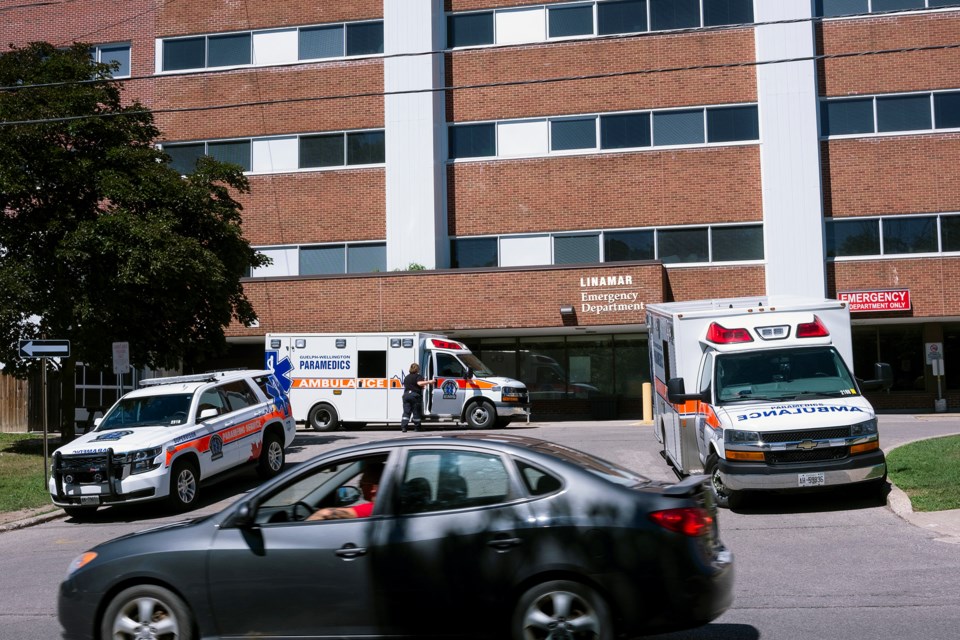Local ambulance response times fell below target levels in three of six categories last year, partly due to a “significant increase” in the number and duration of hospital offloading delays, says Guelph Wellington Paramedic Services chief Stephen Dewar.
“Offload delays at the Guelph General Hospital were historically relatively rare and related to an exceptional surge in call volumes or other specific events,” he states in a report heading to Guelph city council’s committee of the whole next month. “Beginning in late August of 2021 offload delays became a more frequent occurrence and involved multiple teams of paramedics, causing fewer ambulances to be available in the community and increasing the response times to emergency calls.”
Last year local paramedics spent more than 4,900 hours caring for patients during offload delays. That includes a “dramatic increase” in delays lasting more than 90 minutes, which saw more than a 300 per cent jump from 2020.
Response times weren’t met when it comes to “urgent care” such as mild shortness of breath, which saw a 15-minute or better response time in 89 per cent of cases (90 per cent targeted); a 15-minute response time was reached in 87 per cent of “less serious urgent care” cases, such as minor trauma (90 per cent target); as well as 52 per cent of “sudden cardiac arrest” calls (65 per cent target).
Targets were met or bested in cases requiring resuscitation (65 per cent), major trauma (76 per cent) and non-urgent care (94 per cent).
“Response times to emergency calls are an important key indicator for paramedic services,” Dewar notes. “Patient outcomes can be directly related to those times, and overall community satisfaction and perception of the service delivered can also be affected by the time it takes for an ambulance to arrive at the scene of an emergency. “
In addition to offloading delays, response times have been impacted by a 14 per cent increase in calls over 2020, as well as extra time spent at scenes and after calls as a result of COVID-related requirements such as increased personal protective equipment and enhanced cleaning practices, the chief adds.
“Staff predict a continued increase in emergency call volumes in 2023,” he wrote. “With the pressures of increased call volumes, staff do not predict a significant improvement in response times.
“The timing and duration of periods of high incidents of offload delays cannot be predicted, and it is not possible to adjust staffing patterns or deployment plans to fully compensate for this pressure.”



